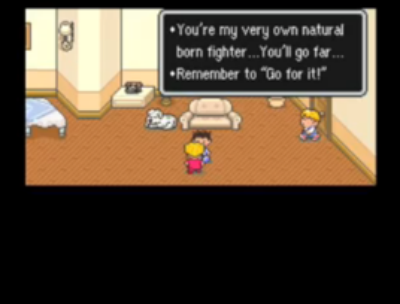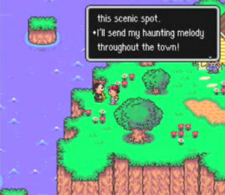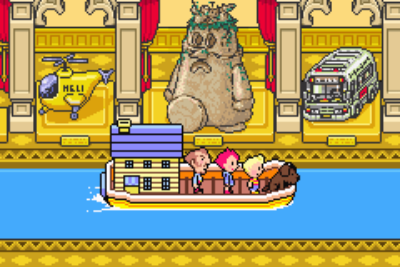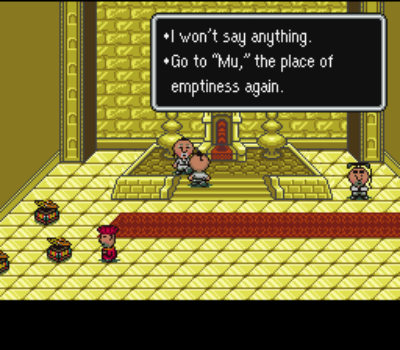the first time she saw a performance of The Magic Flute.
The electrifying moment came when the Queen of the Night launched intoSublime moments, she argues, are points where significant forms, in
her aria. I sat bolt-upright on the edge of the seat, and must have
held my breath for the entire duration. My heart ached and tears
welled up in my eyes. Her voice rang through me everywhere as though I
had dematerialized into an exquisitely sensitive ethereal being that
filled the auditorium. There was intense excitement, but also
something supremely joyful and serene. No words can capture that
charged moment but that I was in the presence of the
sublime.
active engagement, create something akin to love.
"Love" is an overused and abused word, and hence thoroughly inadequate
to describe the rich panoply of feelings that make up the aesthetic
experience. Nevertheless, for those who have been fortunate enough to
have experienced love in the sublime, it is indeed not dissimilar. It
too, is a feeling of heightened awareness of being connected, not only
to the loved one, but to everything else by sympathetic transference
(of both sameness and contrast). The lover is indeed in love with the
whole world. The loved one becomes a sign through which everything
else, even the most ordinary and mundane, is known and loved afresh:
the whole world takes on a new significance.”

The last time I played through Earthbound a line early in the game
jumped out at me. Before Ness starts out on his big adventure his
mother gives him some words of encouragement, including the advice:
“Remember to ‘Go for it!’” I was stuck by the profound absurdity of
this statement. Those quotation marks add so much. By including them
Ness’s mother acknowledges the emptiness of her platitude and further
cheapens the advice by not simply telling Ness to “go for it”
(whatever “it” is) but not to forget to follow the hollow cliché. In
five words we have a critique on the worthlessness of generic sanguine
encouragement far more scathing than any photoshop of a “teamwork”
encouragement poster ever was. But at the same time she is so sincere,
so genuine with her support, that the sentence twists back on itself
into an ouroboros of quiet, deep hilarity. Finally getting the joke,
and the realization of what masterful writing this was, was a moment
of sublimity.
Despite playing the game consistently since its 1995 debut it still
took more than a dozen playthroughs before the "Go for It!" line
distinguished itself for me. Earthbound is the only game where each
repetition brings new revelation. It is a mine which never depletes,
and with each unearthing produces a new and precious gem. There is so
much than endears me to this game that goes beyond the usually
ascribed appeal of wh-whackyness! and “It’s an RPG set in modern times
with like baseball bats instead of swords and stuff!” Director
Shigesato Itoi’s direct but rich and subtle script is only the
beginning.
I marvel at how the graphics which seemed so primitive in ’95 have
only become more timeless and iconic as the game ages; at how the
music is affecting with both melodic and ambient tracks, both layered
with a seemingly endless amount of samples and references; at the
sound that a bicycle makes riding through a swamp.

While all these are well documented details adored by many players,
Earthbound offers personal revelations as well. I was 14 when I first
played the game, and though I first dismissed it as childish and
simple, it lodged itself into my brain. One day I surprised myself by
unconsciously humming the theme to Onett. I was impressed that this
game I had found so distasteful had managed to imprint on me so
strongly. One moment in particular captivated my memory: the trumpet
player who stands on the cliff overlooking the sea playing Dvorak's
Symphony No. 9, Movement 2. Something about that haunting melody
overlaid with the Onett theme sparked a powerful sense of nostalgia,
despite having only played the game a few weeks earlier. This was the
first sublime moment and because of it I returned to Earthbound with
an open mind and an eager heart.
Earthbound has the unique and special property to engender nostalgia.
Both for itself and within itself. To a large degree the plot is about
recovering sweet memories, and there’s nostalgic quality in nearly
every location. A sense of both goodwill and impending loss. The
allure of Earthbound’s nostalgia is so strong that not even the game’s
primary antagonist is immune to its allure.

For several years after when I encountered a particularly beautiful or
seductive place in nature I would call the spot one of “My
Sanctuaries” after the gentle places of power in the game. Such was
the strength of association between Earthbound’s special sense of
nostalgia and real life discovery, beauty, and fleeting tranquility.
Since then I’ve made other happy discoveries within Earthbound’s mise
en scene (for lack of a better term). These include the recognition
that as you move through Onett to Fourside you also travel through a
year from late summer to the hight of spring. Or that the noise in the
background during Poo’s trail is the sound of Om. Unverifiable
interpretations these may be, but for me they enrich and personalize
the experience.

Earthbound is a game constructed out of small sublime moments. Or as
the game itself says over a warming cup of tea, “like a great
tapestry, vertical and horizontal threads have met and become
intertwined, creating a huge, beautiful image.”
Divine as these moments are, none come close to the definition of
sublimity as love. No, that moment comes, as it should, at the end.
The main through-line of the game is that Ness is visiting his My
Sanctuary locations to gain enough strength to defeat an evil alien
who has enslaved the earth in the future. At each location Ness
receives part of a song know as “Eight Melodies.” It’s a beautiful
song, though until it’s completed is filled with a considerable amount
of discord. During the final credits a expanded version called “Smiles
and Tears” plays while images from throughout the game play in the
background (there’s that nostalgic element popping up again). “Smiles
and Tears” is a moving and profound end to the game. The perfect cap
to an amazing ending. However, very very faintly, just as the music
swells to a climax, a voice whispers “I miss you.” It’s so faint that
many people miss it entirely. I completed the game at least ten times
without hearing it myself. After learning about the line on the
internet, and that it was Shigesato Itoi’s voice no less, I made sure
to listen carefully the next time.

One of the main questions in the 'Are Games Art?' debate is if a video
game can make a player cry. Most often this is couched in terms of
narrative, that a game could tell such a moving plot with such
compelling characters that the player would be moved to tears. While
I’ve been moved by games narratives before (Mother 3 and Shadow of the
Colossus spring to mind) I’ve never been close to crying.
"I miss you."
When I heard those words for the first time I felt such a powerful
upsweeping of emotion that I had to blink and wipe the back of my hand
across my eyes. It may not have helped. People have speculated what
this whispered message means. Is it Ness professing is desire for
Paula? Is it a reference to Mother 3? To me it couldn't be more clear.
Here, this game which I have spent so much time with, have discovered
so much about, which has influenced who I am and how I see the world,
and which knows me by name, was telling me personally and singularly
that it regretted that our time together was over. It was confirmation
of a profound connection between me: player, audience, person and a
immaterial collection of data and ideas put together by a man half the
world away who I had never met. It’s hard to express the depth of my
feelings. I can only echo the sentiment of Dr. Ho: no words can
capture the moment I was in the presence of the sublime.
“The creation of significant form is an act of communion, of love"The importance of EarthBound isn’t found in its contributions to the
between artist and nature, between artist and amateur, between amateur
and nature. It is nature presenting nature to herself through us who
are all of the same cloth, to reaffirm and celebrate that universal
wholeness that is both the source and repository of all
creation.”
development of the medium, but to the development of actual human
beings who played it during their formative years." -Michel
McBride-Charpentier
No comments:
Post a Comment